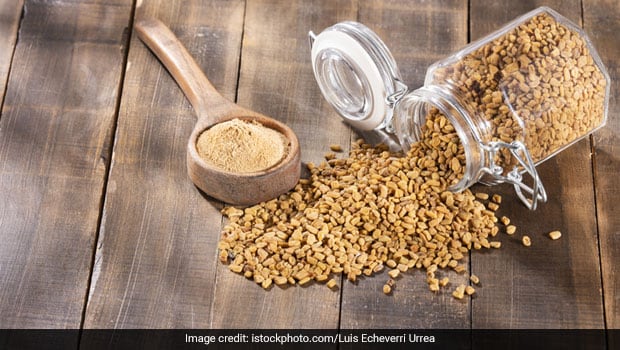Chutney Recipe: Indian food has a rich tradition of making condiments from a number of fruits, vegetables, herbs and spices. We make pickles and chutneys from a wide variety of ingredients, giving us choices galore when it comes to options for pairing our breads with. Chutneys made from tamarind, coriander, tomato, lemon, mango (both the ripe and raw kind), garlic, coconut, ginger, mint etc. are just some of the most popular ones around. While you are likely to have tried at least one or more varieties of chutneys mentioned above, you may not have sampled chutney made from fenugreek seeds or methi dana. Fenugreek is a common beneficial spice found in Indian households.
Also Read: Four Chutneys That Must Be Paired With South Indian Food

Indian Chutney Recipe: Fenugreek seeds make for excellent flavour-enhancers as well.
Fenugreek seeds are used to add flavour to numerous dishes and are also used in food for their various nutritional benefits. From helping regulate blood sugar levels to controlling appetite and lowering cholesterol and even fighting inflammation, fenugreek seeds are known to have multiple health benefits. Fenugreek seeds make for excellent flavour-enhancers as well. To make fenugreek chutney, you will need to soak the methi dana in water for about eight hours and then drain the seeds. Add the seeds to about a cup and a half of water in a pressure cooker, along with pitted sliced dates, raisins, red chilli powder, turmeric powder, aamchoor powder (raw mango powder), dried mango slices, some salt, fennel seeds, coriander powder and then pressure cook for some time.
Add some sugar to the mix, once the spices are all cooked well together. Methi seeds are bitter in taste, so it is important to add the natural sweeteners and white sugar to offset the bitter taste. Check out the full recipe of methi or fenugreek chutney by YouTube chef Manjula Jain from her channel Manjula's Kitchen:
Also Read: Fenugreek (Methi) Water Benefits: 5 Reasons To Drink This Up Every Morning
(This content including advice provides generic information only. It is in no way a substitute for qualified medical opinion. Always consult a specialist or your own doctor for more information. NDTV does not claim responsibility for this information.)






